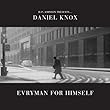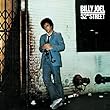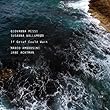 The sound is exalted and exultant but it also seems focused on something troubled, worrying—as if a great spirit had been hurt and was grappling with the pain. Complex emotion, complex sounds—the many labels for structural movements in classical composition are an indication of how difficult it is to organize and perceive complexity.
The sound is exalted and exultant but it also seems focused on something troubled, worrying—as if a great spirit had been hurt and was grappling with the pain. Complex emotion, complex sounds—the many labels for structural movements in classical composition are an indication of how difficult it is to organize and perceive complexity.
Tag: music
Pianists Greg Anderson & Elizabeth Joy Roe’s When Words Fade, with work by Vivaldi, Mozart, Bizet, Schubert, Radiohead, Coldplay and more
 The Russian composer Sergei Rachmaninoff’s always wordless “Vocalise” is, also, a bit heavy, somber. Sergei Rachmaninoff (1873-1943) used modern harmony within traditional form, writing songs, concertos, and operas (one opera was The Miserly Knight, and he created a cantata based on Edgar Allen Poe, The Bells).
The Russian composer Sergei Rachmaninoff’s always wordless “Vocalise” is, also, a bit heavy, somber. Sergei Rachmaninoff (1873-1943) used modern harmony within traditional form, writing songs, concertos, and operas (one opera was The Miserly Knight, and he created a cantata based on Edgar Allen Poe, The Bells).
Hateful Inspirations: the album Evryman for Himself by Daniel Knox
 Daniel Knox is a bit of a paradox, presenting to the world songs that speak of the hopelessness of self and society. “Ghostsong,” with its old-fashion masculine voice, is a hateful tribute. The attitude is one that recurs throughout the album. One imagines that there must be some truth to the attitude, but, also, that the attitude is heightened for dramatic effect. “I make enemies everywhere I go” and “it’s human to feel cheated” and “I leave victims in my path” are some of the assertions in the song “I Make Enemies,” which is given a jaunty rhythm, akin to a brassy anthem from a theater musical. The narrator of the song feels crowded, inconvenienced by other people.
Daniel Knox is a bit of a paradox, presenting to the world songs that speak of the hopelessness of self and society. “Ghostsong,” with its old-fashion masculine voice, is a hateful tribute. The attitude is one that recurs throughout the album. One imagines that there must be some truth to the attitude, but, also, that the attitude is heightened for dramatic effect. “I make enemies everywhere I go” and “it’s human to feel cheated” and “I leave victims in my path” are some of the assertions in the song “I Make Enemies,” which is given a jaunty rhythm, akin to a brassy anthem from a theater musical. The narrator of the song feels crowded, inconvenienced by other people.
A Link Between Gershwin and Rock: Billy Joel, 52nd Street, featuring “Big Shot” and “My Life”
 Billy Joel claims that tenderness is more common than truth in his downbeat, string-laden ballad “Honesty,” which he sings with a full-throated intensity that verges on bombast, although the simplicity of the theme, the actual necessity of truth, justifies the expression of passion. Paul McCartney’s influence is perceptible in the piano arrangement in the story-song “My Life,” about the sudden shifts, the instability, in American lives as well as the quest for individuality (there is a direct relationship between the quest and the instability; and the song’s observations are funny).
Billy Joel claims that tenderness is more common than truth in his downbeat, string-laden ballad “Honesty,” which he sings with a full-throated intensity that verges on bombast, although the simplicity of the theme, the actual necessity of truth, justifies the expression of passion. Paul McCartney’s influence is perceptible in the piano arrangement in the story-song “My Life,” about the sudden shifts, the instability, in American lives as well as the quest for individuality (there is a direct relationship between the quest and the instability; and the song’s observations are funny).
Who by Fire and Ice Calls: If Grief Could Wait by harpist Giovanna Pessi and singer-songwriter Susanna Wallumrod, performing Henry Purcell and other composers
 Spiritual desolation is expressed by the lonely simplicity of “The Plaint,” written by Henry Purcell, containing the lines, “I’ll hide me from the sight of day, and sigh, and sigh my soul away.” We may want to be alone, but others do not always let us alone. The question “Who shall I say is calling?” is asked in the composition “Who by Fire.” In Leonard Cohen’s “Who by Fire,” a well-known song, incantatory, the lyrics suggest the different circumstances of address, as if in private or public ritual; and it is great having it near the beginning of If Grief Could Wait, adding energy and mystique.
Spiritual desolation is expressed by the lonely simplicity of “The Plaint,” written by Henry Purcell, containing the lines, “I’ll hide me from the sight of day, and sigh, and sigh my soul away.” We may want to be alone, but others do not always let us alone. The question “Who shall I say is calling?” is asked in the composition “Who by Fire.” In Leonard Cohen’s “Who by Fire,” a well-known song, incantatory, the lyrics suggest the different circumstances of address, as if in private or public ritual; and it is great having it near the beginning of If Grief Could Wait, adding energy and mystique.
Hop Over the Squares: Black Lace Freudian Slip by Rene Marie
 In the song the time is late and Rene Marie is ready for home, love, rest, as “tomorrow is already today.” I began by commenting that Black Lace Freudian Slip is a master class in good, possibly great, singing; and my hesitation was due to my perception that a definitive assertion of rare and important quality—of greatness—can be off-putting when it comes blunt and fast, but this is what I think: Rene Marie is a great singer.
In the song the time is late and Rene Marie is ready for home, love, rest, as “tomorrow is already today.” I began by commenting that Black Lace Freudian Slip is a master class in good, possibly great, singing; and my hesitation was due to my perception that a definitive assertion of rare and important quality—of greatness—can be off-putting when it comes blunt and fast, but this is what I think: Rene Marie is a great singer.
A Garden of Wisdom, from Some Long-Ago Dream: Carole King’s Tapestry
On Tapestry, King’s singing, sincere and strong, is quite good in “I Feel the Earth Move,” which has a driving rhythm and engaging melody, and uses earthquake as a metaphor for a stirring love. The song is more dramatic than romantic, as it contains energy and hunger. It is followed by the ballad “So Far Away,” in the album’s regular pattern of an uptempo song followed by a ballad. One can hear a little jazz in “It’s Too Late,” a rock song about a failing relationship, the rhythms of the song matching the intensity of the situation.
When Strength is Earned and Becomes Beauty: On Tina Turner, “I Might Have Been Queen,” Private Dancer, Break Every Rule, Foreign Affair, and More
 Tina Turner: hair, eyes, mouth, teeth. Glowing brown skin. Breast, hips, legs. A burst of dazzling energy. Honesty and passion. Dignity and sexiness. Tough history, tougher spirit. Serenity sought and found. A new telling of a woman’s story, of an American life—and the evolution of an international artist and entertainer. In “I Might Have Been Queen,” a song that she sings with sorrow and pride, with resignation and triumph, Tina Turner looks out over time, looks at and through history, and sees no tragedy.
Tina Turner: hair, eyes, mouth, teeth. Glowing brown skin. Breast, hips, legs. A burst of dazzling energy. Honesty and passion. Dignity and sexiness. Tough history, tougher spirit. Serenity sought and found. A new telling of a woman’s story, of an American life—and the evolution of an international artist and entertainer. In “I Might Have Been Queen,” a song that she sings with sorrow and pride, with resignation and triumph, Tina Turner looks out over time, looks at and through history, and sees no tragedy.
Seven Compositions (Here Playful, There Serious): Beautiful Mechanical by the classical group yMusic
 On Beautiful Mechanical, the title song has a nearly comic frantic energy, something the strings both soften and deepen, before going off on their own quick currency against a droning beat. The piece is actually hard to grasp, to think about, as it contains much frequently fast textured movement. “Proven Badlands,” featuring cello and horn, is slow, sonorous, and has a cinematic quality, especially in the rise of the horns in repeated phrases. The high, mellow but still sharp, soaring trumpet playing, and a three-beat rhythm, and a scraping against strings, distinguish it.
On Beautiful Mechanical, the title song has a nearly comic frantic energy, something the strings both soften and deepen, before going off on their own quick currency against a droning beat. The piece is actually hard to grasp, to think about, as it contains much frequently fast textured movement. “Proven Badlands,” featuring cello and horn, is slow, sonorous, and has a cinematic quality, especially in the rise of the horns in repeated phrases. The high, mellow but still sharp, soaring trumpet playing, and a three-beat rhythm, and a scraping against strings, distinguish it.
The Use of Quiet Powers: The Very Best of Mariah Carey
 So much for failure in love. Mariah Carey’s voice can sound hammer-strong or feather-light, and she uses different parts of her voice in “Breakdown,” which opens with a man’s chanting voice (the voice, appearing in different instances in the song, makes the song nearly a duet, which is odd since most of the lyrics focus on separation). It is a song with texture—layers of sound, and rhythms going in more than one direction.
So much for failure in love. Mariah Carey’s voice can sound hammer-strong or feather-light, and she uses different parts of her voice in “Breakdown,” which opens with a man’s chanting voice (the voice, appearing in different instances in the song, makes the song nearly a duet, which is odd since most of the lyrics focus on separation). It is a song with texture—layers of sound, and rhythms going in more than one direction.